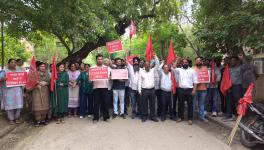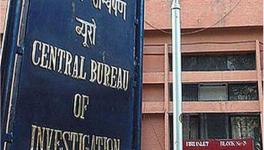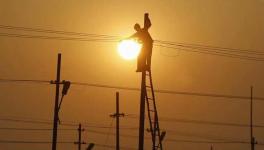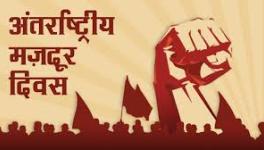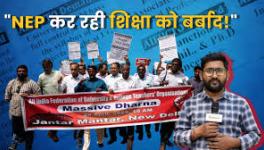Amendment Bill will Worsen Power Sector Crisis, say Power Engineers and Experts at National Seminar
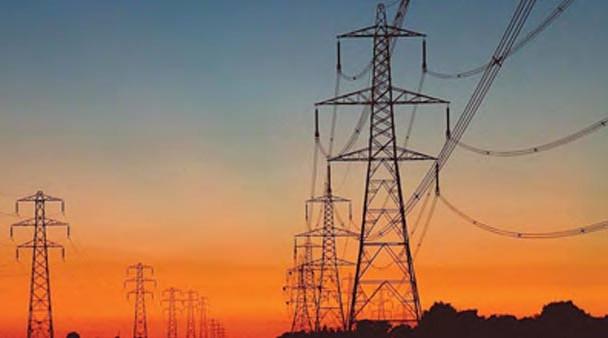
As electricity employees’ unions continue to oppose the Electricity (Amendment) Bill 2014 – which seeks to extend privatisation to power distribution – the All India Power Engineers Federation (AIPEF) organised a two-day national seminar at Bangalore to discuss the crisis in the power sector.
Power engineers and experts from all over India came together for the 3rd National Conference of Power Engineers & Seminar On Power Sector, held on November 17 and 18.
They demanded that the amendment Bill be put on hold – amid reports that the Union government may reintroduce it in the upcoming winter session of Parliament – until the proposed changes were discussed with all stakeholders, including employees and consumers.
Speaking to Newsclick, AIPEF chairman Shailendra Dubey said, “The power sector is facing a financial crisis and is on the verge of collapse. In such a scenario, the amendment Bill in its present form must not be allowed to pass in Parliament. The government must also review the Electricity Act 2003 and the repercussions and reforms that followed, which have landed us in this situation.”
The Bill, which seeks to amend the Electricity Act 2003, intends to bifurcate the distribution of power into carriage (infrastructure) and sale of power.
A government company will lay down the wires that carry electricity, while private companies will compete over selling that electricity to consumers to earn profits, the Bill envisages.
Participants at the seminar also highlighted the urgent need to review the Electricity Act 2003, which had dismantled the State Electricity Boards (SEBs), replacing them with three separate entities catering to generation, transmission and distribution.
This move was following the World Bank model of “unbundling” of the power sector, so as to allow private entities into the safer and more profitable aspects, such as generation. Indeed, a large number of private companies entered power generation in India.
AIPEF chairman Shailendra Dubey said the Electricity Act 2003 had failed to yield the desired results, but yet another experiment was being carried out in the form of the amendment Bill.
The distribution companies (discoms) have already accumulated losses of Rs 4.14 lakh crore while their debt has risen to 4.22 lakh crore as of 2015-16. Dubey said the losses were increasing at a rapid rate as discoms were paying thousands of crores of rupees to private sector generators, without using even a single unit of electricity due to faulty power purchase agreements.
For example, Madhya Pradesh had paid Rs. 5,000 crore as fixed charges in 2016-17 to independent power producers (IPPs) without using any power, he said.
The participants deliberated upon the failure of the private sector. This is evident from Odisha, Dubey said, where all the private companies are now in government hands or franchisees are leaving one after the other after failing to serve consumers and only serving their financial interests. The participants also discussed the power purchase agreements.
Shankaralinge Gowda, chairman of the Karnataka Electricity Regulatory Commission, said there was a need for dramatic improvements in power consumption in the country, so that surplus power capacity is fully utilised.
While inaugurating the seminar, Gowda said India ranked fourth in the world in terms of power capacity, but when it came to power consumption, the country consumes 3 units per day per person. In a state like Bihar, the consumption was 1 unit per person per day.
If the GDP grows at 7-8% per annum, then power consumption must increase by 10%, he said.
The national seminar was attended by a number of eminent personalities connected with the power sector, including EAS Sarna, Former Secretary (Power) to Government of India; Dr A Gopala Krishnan, Former Chairman Atomic Energy Regulatory Board; Shantanu Dixit from Prayas Energy Group; Paranjoy Guha-Thakurta, former editor of Economic and Political Weekly; and K Ashok Rao, former president of National Confederation of Officers' Association and public sector expert.
Get the latest reports & analysis with people's perspective on Protests, movements & deep analytical videos, discussions of the current affairs in your Telegram app. Subscribe to NewsClick's Telegram channel & get Real-Time updates on stories, as they get published on our website.









